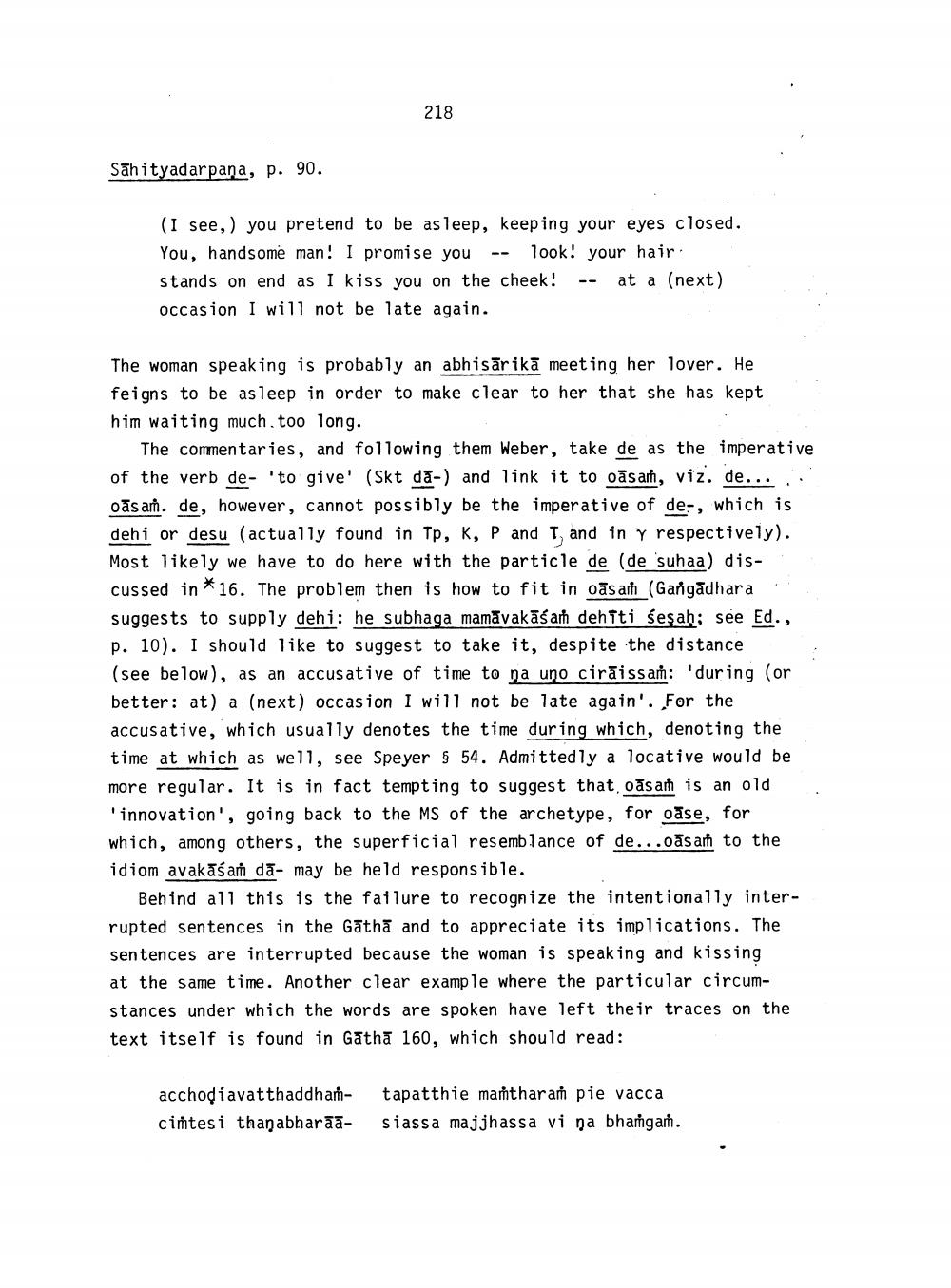________________
218
Sāhityadarpaņa, p. 90.
(I see,) you pretend to be asleep, keeping your eyes closed. You, handsome man! I promise you -- look! your hair. stands on end as I kiss you on the cheek! -- at a (next) occasion I will not be late again.
The woman speaking is probably an abhisārikā meeting her lover. He feigns to be asleep in order to make clear to her that she has kept him waiting much too long.
The commentaries, and following them Weber, take de as the imperative of the verb de- 'to give' (Skt da-) and link it to oāsa, viz. de... :: oās añ. de, however, cannot possibly be the imperative of de-, which is dehi or desu (actually found in Tp, K, P and T and in y respectively). Most likely we have to do here with the particle de (de 'suhaa) discussed in *16. The problem then is how to fit in oasa (Gangadhara suggests to supply dehi: he subhaga mamāvakāśam dehiti śeşah; see Ed., p. 10). I should like to suggest to take it, despite the distance (see below), as an accusative of time to na uno cirāissań: 'during (or better: at) a (next) occasion I will not be late again'. For the accusative, which usually denotes the time during which, denoting the time at which as well, see Speyer $ 54. Admittedly a locative would be more regular. It is in fact tempting to suggest that, oasa is an old 'innovation', going back to the MS of the archetype, for oase, for which, among others, the superficial resemblance of de...oās ar to the idiom avakaś aṁ dā- may be held responsible.
Behind all this is the failure to recognize the intentionally interrupted sentences in the Gathā and to appreciate its implications. The sentences are interrupted because the woman is speaking and kissing at the same time. Another clear example where the particular circumstances under which the words are spoken have left their traces on the text itself is found in Gathā 160, which should read:
acchodiavatthaddhan- cintesi thaŋabharāā-
tapatthie martharaṁ pie vacca siassa majjhassa vi na bhagań.




